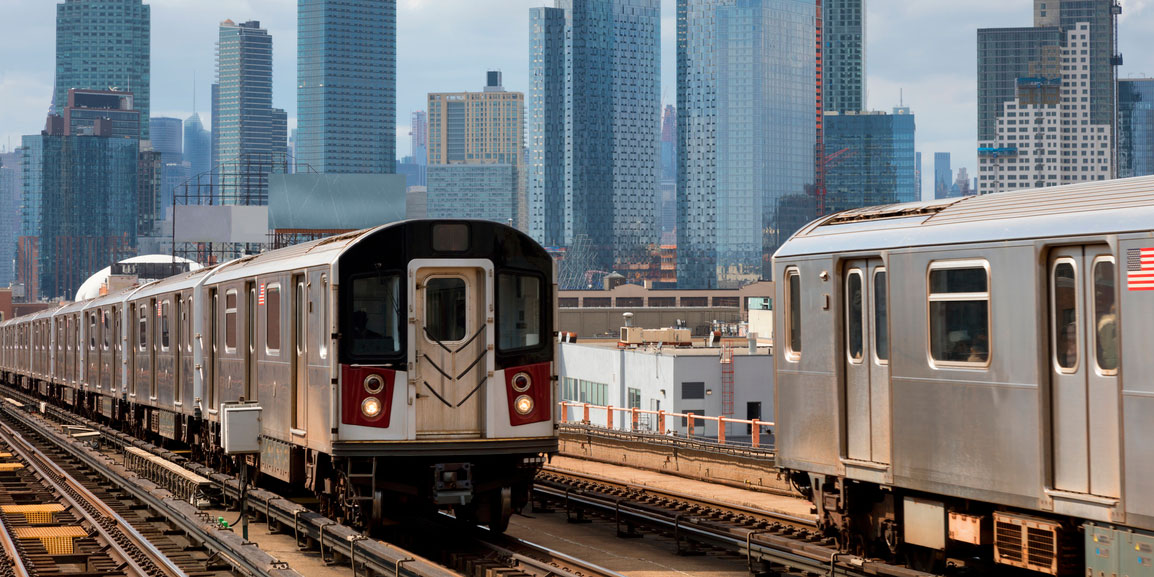Contrary to the focus on today’s version of soccer moms in swing suburbs, this month’s election showed that aspiring presidents ignore big cities at their peril. Sure, president-elect Joe Biden could have secured the critical states of Georgia, Michigan, and Pennsylvania without the lopsided wins he saw in Atlanta, Detroit, and Philadelphia — but it would have been much harder.
Yet Republicans consistently ignore urban areas because they think they can’t win, and Democrats because they take them for granted. Biden and a divided Congress can change that pattern, by meeting one of cities’ most acute pandemic needs: rescue their fiscally decimated transit systems.
Michigan, Pennsylvania, Georgia — two swing states and an entirely flipped state, and all key to Biden’s victory. In Michigan, Biden is up by 150,000 votes. In Wayne County, though, home to Detroit, with record turnout, it was a landslide, with Biden up by 330,000 votes, winning more than 70 percent. Biden garnered 80,000 more votes than Hillary Clinton did four years ago, a big chunk of his victory.
In Pennsylvania, Biden won by a hair-sliver 82,000 votes, less than a two percent difference from President Donald J. Trump. In Philly, though, it was another landslide — with Biden up by 470,000 votes.
Finally, in Georgia, a flipped state for Biden, Atlanta was key. Without his nearly 250,000-vote margin in Fulton County (Atlanta), he would have lost. In Fulton County, with its own record turnout, Biden bested Clinton’s 2016 tally by more than 84,000 votes.
Cities across the country and their neighboring suburbs were solidly there for Biden, then. As America recovers from the pandemic, hopefully next year, cities have one unique need that’s often neglected by Congress and the White House, with both parties’ never-ending quest for swing voters: transit funding.
Before the pandemic hit, 25 percent of Philadelphia workers took mass transit to work, according to the U.S. Census. In Atlanta, 10.5 percent of commuters took transit. Even in Detroit, home of the car, 7.2 percent of people took transit (mostly buses) to work.
But now, because of both job losses and fear of crowds, transit systems face their biggest funding crisis in history. In Philly, ridership across subways, streetcars and buses is off by 65 percent. In Atlanta, ridership is down 47 percent on buses, 66 percent on rail. In Detroit, bus ridership is down 60 percent, and bus drivers there, last month, went on a short strike to protest violent attacks against them from passengers resistant to wearing masks.
As fare revenue has plummeted — Philadelphia’s system is losing $1 million a day cities are already slashing service. This action, though, creates a death spiral: with less reliable service, passengers who can afford to do so will begin to rely on cars, leaving behind poorer customers with bad choices: either leave the workforce altogether, or endure hours-long, crowded commutes, wasting time that could be better spent with family or on educational advancement.
The crisis extends beyond three cities, of course: from New York to San Francisco, to avoid crowding and delays, transit systems should be running normal or near-normal schedules, but must do so with a fraction of revenues.
One of the most constructive things President Biden can do for cities next year, then, is to ask Congress to commit to making up for lost fares at the nation’s transit systems, not just for a few months, but until 2025.
This may not be the sexiest transportation-policy initiative, compared to subsidies for electric cars and funding new trains to airports. But ensuring that energy-efficient cities recover is a key part of any rational economic-recovery policy. Both parties have a political stake, too. Demography dictates that Republicans cannot ignore cities and their nearby suburbs forever. Cities can’t recover, in turn, unless their transit systems recover, allowing everyone a fair shot of getting to work, to school, or to see family and friends, no matter what their income.
This piece originally appeared at RealClearPolicy
______________________
Nicole Gelinas is a senior fellow at the Manhattan Institute and contributing editor at City Journal. Follow her on Twitter here.
This piece originally appeared in RealClearPolicy
